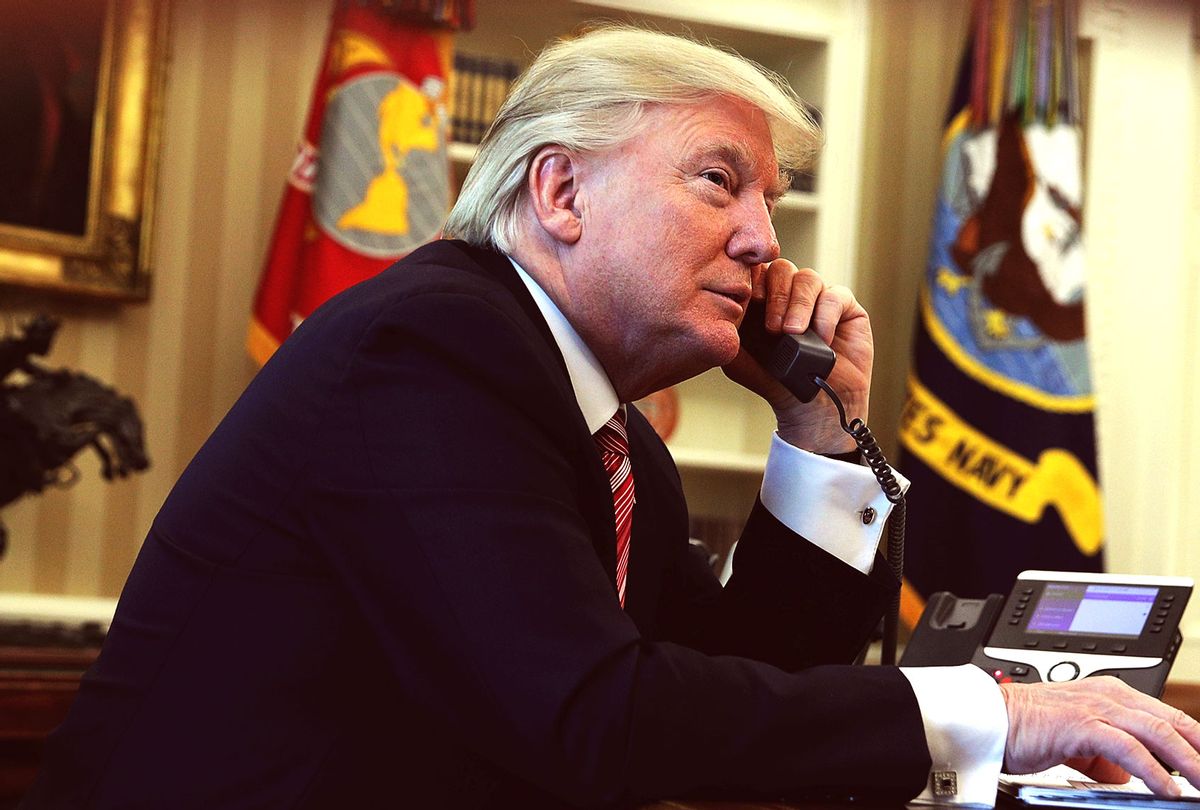Embattled Texas attorney general Ken Paxton was widely derided after he filed a longshot lawsuit on Tuesday asking the U.S. Supreme Court to block electors in key battleground states from casting "unlawful and constitutionally tainted votes."
There is no evidence of fraud in the presidential election, according to election officials in every state. President-elect Joe Biden won with a record-setting 81 million votes — a margin of victory of more than seven million votes over Donald Trump.
Paxton's complaint charges Wisconsin, Georgia, Michigan and Pennsylvania with what he claims were illegal procedural changes made ahead of the election to limit the spread of the coronavirus, allegations that Pennsylvania already successfully argued could violate due process rights for millions of voters. At one point, Paxton's filing repeats the debunked claim that a mysterious late-night dump of ballots boosted Biden's chances in Pennsylvania, alleging that Trump's opponent had "less than one in a quadrillion" odds of winning all four states. All four states have certified their results, and all but Wisconsin met Tuesday's "safe harbor" deadline, the accepted final date by which states must complete all post-election challenges, such as recounts. State courts will likely toss any new challenges filed after that date.
Legal experts quickly dismissed the lawsuit and some questioned whether Paxton, currently the target of an FBI bribery investigation, is angling for a pardon from the outgoing president.
Attorneys general from the targeted states also pushed back against the suit. "
With all due respect, the Texas Attorney General is constitutionally, legally and factually wrong about Georgia," Katie Byrd, spokeswoman for Republican Georgia attorney general Chris Carr, said in a statement. The other three attorneys general, all Democrats, issued a joint statement calling Paxton's effort an attempt to "mislead the public and tear at the fabric of our Constitution."
But on Wednesday afternoon, 17 Republican-led states, led by Missouri, signed on to an amicus brief in support of Texas. Reuters justice correspondent Brad Heath pointed out that several of those states had implemented the same election procedures that they criticize as unlawful.
"I suspect a lot of these Republican states would've been been a lot more reluctant to sign on to these kinds of legal arguments — which would expose them to tons of litigation over their own laws — if they thought it had any chance of success," Heath said.
Trump allies on Capitol Hill, some under pressure from the Oval Office, also pushed ahead.
Rep. Mike Johnson, R-La., on Wednesday sent an email asking every House Republican to add their signatures to an amicus brief for Paxton's suit. Trump, Johnson told his colleagues, had called him personally and is "anxiously awaiting the final list" of signatories.
"Are we the party of list-making now?" one lawmaker asked CNN's Jake Tapper.
The 154-page filing, a hard copy of which White House press secretary Kayleigh McEnany held aloft for the benefit of viewers during a Tuesday night interview with Fox News personality Sean Hannity, comes as the Supreme Court issued a one-sentence rejection of a GOP challenge to Pennsylvania's use of mail ballots.
While Paxton may have won support from MAGA-world, Republican attorney George Conway, husband of former top Trump official Kellyanne Conway, called the exercise "insane."
"The notion that the Supreme Court is going to have a litigation . . . where states are attacking each others' rules for choosing electors is insane," Conway told CNN, adding that "the biggest election fraud of the 2020 cycle" is "the lie that [Donald Trump] won the election."
Harvard Law professor Noah Feldman wrote in a Bloomberg op-ed: "In Trump's fantasy world, apparently shared by Texas attorney general Ken Paxton, the Supreme Court will engage in a constitutional coup d'état and give Trump a second term."
"This idea is based on a view of the court as entirely partisan," he continued. "It's disrespectful of the rule of law. And it's wrong, whether held hopefully on the right or fearfully on the left."
Rick Hasen, top election law expert and professor of Law and Political Science at the University of California Irvine, said the case was a "publicity stunt" for a presidential pardon.
"The Texas case is not serious. Far from it. It's a publicity stunt masquerading as a lawsuit," Hasen tweeted on Tuesday. "AG Paxton should be sanctioned for it. It goes against the will of millions of voters. He's going for a pardon with Trump."
Indeed, Paxton has legal exposure of his own. He is currently the target of a federal probe into allegations that he committed bribery and abused his office on behalf of a wealthy political donor.
Beyond that, Paxton is still under indictment for felony securities fraud, for convincing investors to buy shares of a tech firm without disclosing that he would get commission on the sale. The case has bounced around Texas trial courts for five years, reaching the state's highest criminal court before dropping back down to the county level. Paxton himself has still not faced trial.
The president's pardon power does not extend to state charges.



Shares